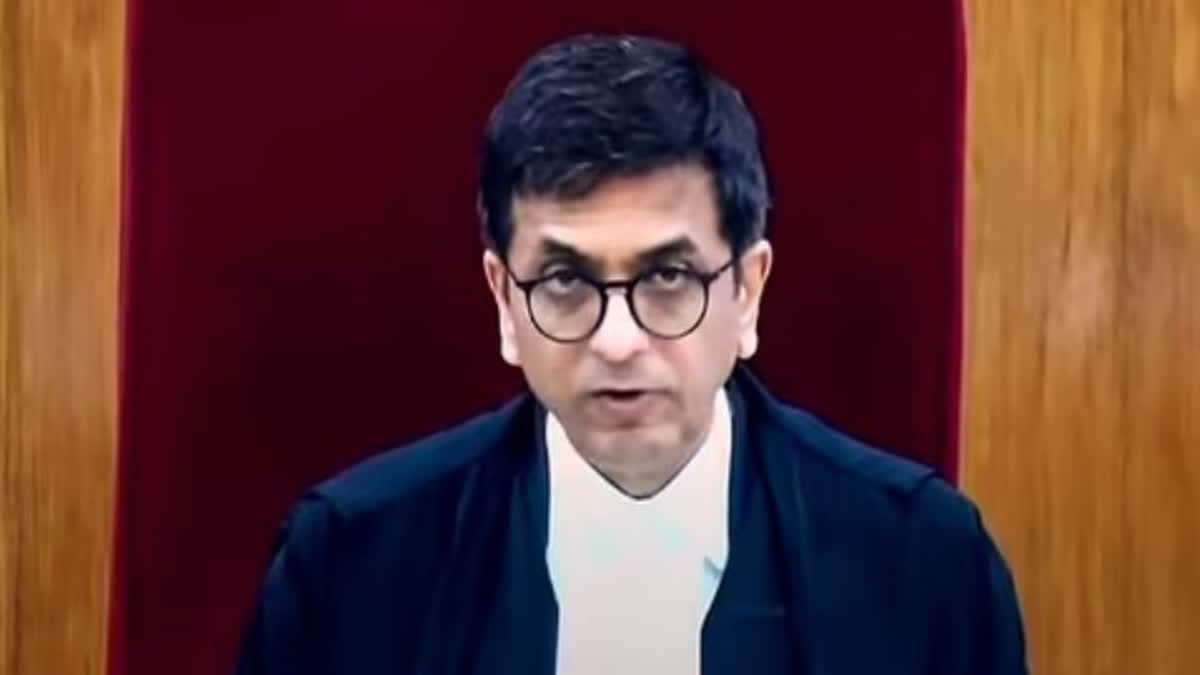New Delhi: Four years, four months and five days after Jammu and Kashmir's special status under Article 370 was abrogated by the central government, the Supreme Court's 5-judge constitution bench on Monday delivered its much-awaited judgment. The apex court on August 2, this year, began hearing a batch of petitions against the abrogation of Article 370. The daily hearing on the legality of the August 5, 2019 decision went on for 16 days following which the apex court reserved its judgement on September 5.
On Monday, while upholding the Centre's decision to abrogate Article 370 and bringing in the Jammu and Kashmir Reorganisation Bill 2019, Chief Justice Dhananjaya Yeshwant Chandrachud pointed out that the "Article 370 was temporary and Jammu and Kashmir had no internal sovereignty left once it acceded the Union of India."
In its judgement, the court also directed the Election Commission of India to take steps to hold elections for the J&K legislature by September 30, 2024, and that statehood be restored at the earliest.
Here are the 10 key statements from the verdict read by the Chief Justice of India:
- State of J&K does not retain any element of sovereignty. It does not have internal sovereignty. Article 370 is a feature of asymmetric federalism and not sovereignty.
- Petitioners did not challenge Presidential Proclamation. Exercise of Presidential power after the proclamation is subject to judicial review. Exercise of power by the President under 370(1)(d) is not mala fide. The President did not have to take concurrence of the State and can act on Union's concurrence.
- Power of Parliament under Article 356(1) to exercise powers on behalf of the State Assembly is not restricted to law-making powers.
- We have held that Article 370 is a temporary provision. Power under Article 370(3) did not cease after the J&K Constituent Assembly ceased to exist. Article 370 cannot be amended by exercise of power under Article 370(1)(d).
- Para 2 to CO 272 applying all provisions of the Constitution to J&K is valid.
- The President had the power to issue a notification declaring that Article 370 ceases to operate without a recommendation of the J&K Constituent Assembly. It is a culmination of the integration process.
- The question of whether Parliament can extinguish the character of statehood by converting a State into one or more Union Territories in exercise of power under Article 3 is left open.
- In an appropriate case, this Court must construe the scope of powers under Article 3 in light of the necessary effect of converting a State to Union Territories which is that autonomy would be diminished, the historical context for the creation of federating units, and its impact on the principles of federalism and representative democracy.
- The views of the State legislature under Article 3 proviso are recommendatory. SG stated that the statehood of J&K will be restored except for the carving out of the UT of Ladakh. So this issue is left upon.
- We direct that steps shall be taken by the Election Commission of India to conduct elections to the J&K assembly by September 30. Restoration of statehood shall take place as soon as possible.
Also read:
- Landmark judgment | SC upholds abrogation of Article 370, directs ECI to conduct elections in J&K by Sept 2024
- 'Wounds Require Healing’, Justice Kaul recommends setting up Truth and Reconciliation commission in J&K
- Resounding declaration of hope: PM Modi hails SC verdict upholding abrogation of Article 370
- SC verdict on Article 370 is sad but we have to accept it: Ghulam Nabi Azad



